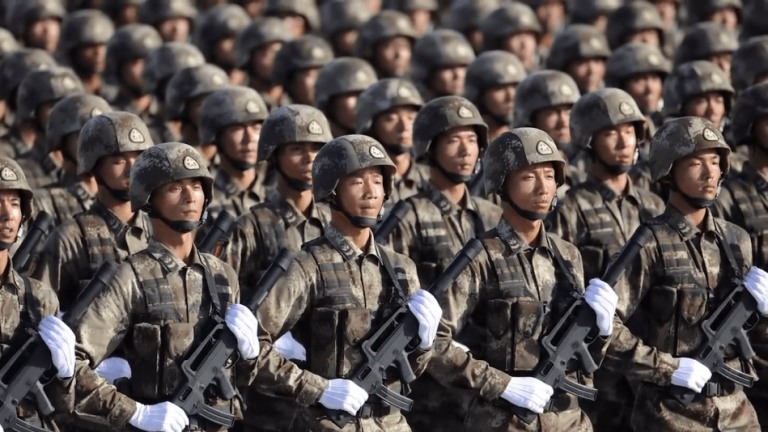On Thursday, Nov. 12, 2020, the Trump administration issued an executive order barring investments in private companies with close ties to Chinese military, intelligence, and security organizations.
The order was issued to safeguard American interests as investing in these private firms indirectly funds the Chinese military. In turn, these companies use the funds to develop and aid the modernization and advancement of China’s People’s Liberation Army (PLA).
American investors funds find their way to these companies through mutual funds, pensions, and other investment vehicles listed on domestic as well as international exchanges.
The order goes into effect on Jan. 11, 2021 and will allow investors until November 2021 to divest in these Chinese military linked companies.
PLA entity lists
The executive order follows announcements earlier this year by the Department of Commerce and Department of Defense, which both issued lists of Chinese companies linked to the PLA.
Success
You are now signed up for our newsletter
Success
Check your email to complete sign up
The Department of Commerce added 24 Chinese firms to the Entity List back in May 2020. The press release states: “The entities, based in China, Hong Kong, and the Cayman Islands, represent a significant risk of supporting procurement of items for military end-use in China.”
“The new additions to the Entity List demonstrate our commitment to preventing the use of U.S. commodities and technologies in activities that undermine our interests,” according to Secretary of Commerce Wilbur Ross.
The Department of Defense also added names to their list of private Chinese companies linked to the PLA back in August of this year.
The list was first compiled in June to “highlight and counter the People’s Republic of China’s (PRC) Military-Civil Fusion development strategy, which supports the modernization goals of the People’s Liberation Army (PLA) by ensuring its access to advanced technologies and expertise acquired and developed by even those PRC companies, universities, and research programs that appear to be civilian entities.”

Chinese military investments
Investments in these companies run counter to America’s security as entities on the list include Chinese surveillance and technology companies that engage in espionage and human rights violations. Huawei and Hikvision are two examples of entities that both aid in the mass surveillance within the Xinjiang Uyghur Autonomous Region (XUAR).
Hikvision, most known as the maker of video surveillance cameras, also supplies the concentration camps within XUAR with surveillance equipment to monitor the Uyghur population detained within the camps.
Huawei, the maker of telecommunication equipment and cell phones, supplies networks with 5G equipment sold internationally. The company has been accused of espionage and dealing with Iran in contravention of sanctions. They are also accused of using their technology within the concentration camps for the detention of Uighurs and benefiting from the forced labor of the detainees to create equipment.
A report by RWR Advisory, a Washington-based research and risk consultancy notes that among the PLA-linked firms on the list, China National Chemical Corp. (ChemChina) and China Three Gorges Corp. (CTG) raised a combined $3.4 billion this September in U.S. dollar-denominated bond offerings.
SEC regulation
The SEC is expected to propose regulation next month to enforce Public Company Accounting Oversight Board (PCAOB) standard audits on Chinese companies listed on American exchanges. Currently Chinese companies are exempt from audit reviews by the board which has been a source of headaches as the companies generally cite, “state secrecy and national security laws” as a reason to block U.S. standard audits. The proposed regulations, if enacted, will go in effect next year after the current SEC chairman’s departure.
The proposed regulation would force these companies to comply with U.S. audit standards in order to be listed on American exchanges to reduce risks to investors. Risks can be significant as seen earlier this year when Lukin Coffee disclosed $310 million of its 2019 revenue was fabricated. The amount represents 40 percent of total revenue reported for the company last year.
More than 200 Chinese companies were listed on U.S. exchanges as of Oct. 2, worth a combined market value of $2.2 trillion, the Congressional U.S.-China Economic Security and Review Commission reports.
The PRC has also influenced international index providers to increase the weight of Chinese stocks and bonds in their benchmarks or portfolios. For example, index provider MSCI boosted the weight of PRC companies’ shares, causing billions in investment to flow into those firms.
By Debbie Cho
















